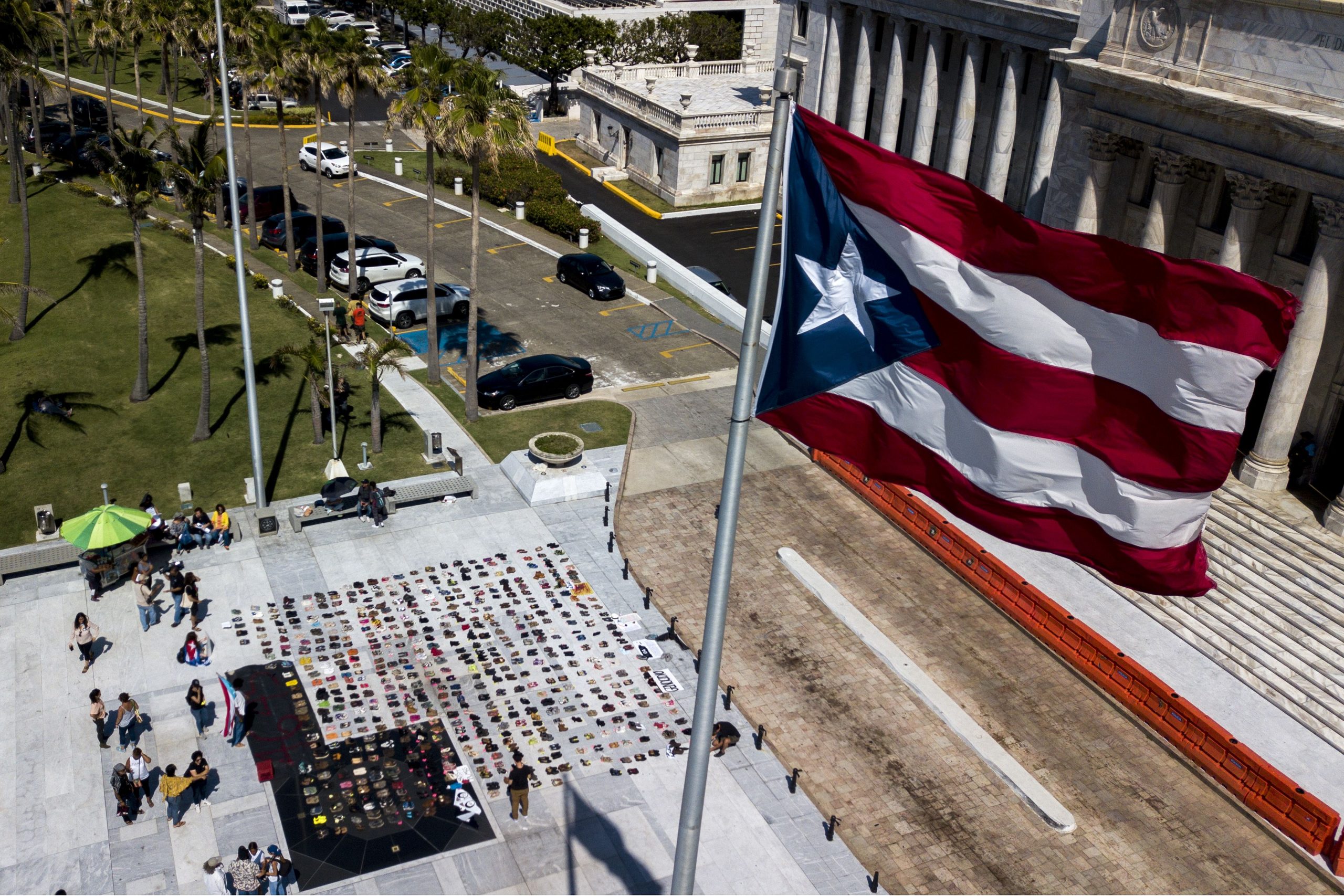The oversight board in charge of Puerto Rico’s ongoing debt restructuring saga announced late on Sunday they have come to terms with bondholders of around $35 billion, which accounts for nearly 50% of the bankrupt island’s total bonded debt.
The agreement, which is on the framework for the plan of adjustment, provide for more than a 60% average haircut for all $35 billion, a 36% haircut on pre-2012 general obligation or “GO” bonds, and a 27% haircut on public authority bonds that carry a constitutional guarantee on payment.
The deal with supporting creditors “will reduce the amount of Commonwealth-related bonds outstanding to less than $12 billion,” the oversight board said in a press release. It will also slash the bankrupt island’s debt service, including principal and interest over the next 30 years, by roughly half to $21 billion from $43 billion.
Of the roughly $13 billion in outstanding GO bonds, the bonds issued pre-2012 would receive 64 cents on the dollar, while the 2012 and 2014 GO bonds have a settlement option of receiving 45 cents on the dollar and 35 cents on the dollar, respectively, according to the deck for the proposed agreement.
The difference in recoveries stems from a legal move the federally appointed board made in January when they requested that the judge overseeing the bankruptcy proceedings invalidate $6 billion in general obligation bonds. The board argues that the bonds issued in 2012 and 2014 violated the terms of Puerto Rico’s constitution and therefore are not valid.
If the 2012 and 2014 bondholders decide not to settle for the proposed amounts, they have the option to litigate for pari recovery with pre-2012 bonds.
“We have fought hard for the interests of the people of Puerto Rico and we are glad to have reached a consensual agreement with creditors that lowers Puerto Rico’s total debt burden and its annual debt payments significantly,” said the Oversight Board’s Executive Director Natalie Jaresko. “These were tough negotiations and we are confident we reached the best deal possible for Puerto Rico to move on from decades of incurring debt we could not afford.”
Puerto Rico first defaulted on its general obligation bonds in July 2016, when it failed to pay roughly $1 billion owed to its creditors and hasn’t made any payments since.
“It is a very positive development for Puerto Rico that a cross section of large bondholders has worked with the Oversight Board to develop a consensual restructuring agreement that will accelerate the Commonwealth’s exit from bankruptcy, respect the lawful priority of valid public debt, and help ultimately restore capital markets access.” said Susheel Kirpalani, an attorney from Quinn Emanuel Urquhart & Sullivan who represents bondholders in the Lawful Constitutional Debt Coalition.
That group holds approximately $1.4 billion in constitutionally backed debt and includes hedge funds GoldenTree Asset Management, Monarch Alternative Capital, Whitebox Advisors and Taconic Capital, according to public filings.
The deal, which took about three months of negotiations, is expected to be filed with the court within 30 days with bondholders anticipating the plan’s ultimate approval by early 2020, according to a source familiar with the settlement agreement.
The Government of Puerto Rico issued a statement rejecting the deal, citing the administration’s strong opposition to pension cuts, which are included in the amended fiscal plan the restructuring deal is premised on.
“Not one word of the PSA (Plan Support Agreement) is considered acceptable to AAFAF,” Christian Sobrino Vega, the CEO and president of the Puerto Rico Fiscal Agency and Financial Advisory Authority said in the statement. AAFAF is the acronym for the agency’s name in Spanish.
“And we can confidently state that no legislation, executive action or other administrative approval required from the Government of Puerto Rico will be taken to implement an agreement that directly or indirectly supports a Plan of Adjustment that cuts payments to our retirees,” Sobrino Vega said.
The island’s oversight board has been making some progress in 2019 after being appointed in 2017 to oversee the $73 billion restructuring, which is the largest in the history of the U.S. municipal bond market.
Note: our company created a profitable forex robot with low risk and stable profit 50-300% monthly!
In February, U.S. District Judge Laura Taylor Swain, who is overseeing the record bankruptcy-like proceedings, approved a deal to restructure about $17 billion of sales tax backed bonds, known as COFINA for the Spanish acronym. In that deal, senior bondholders saw 93% recoveries, while junior bondholders received 53%.
Additionally, the court also approved the restructuring of around $4 billion for the Government Development Bank’s debt.
There is also a preliminary agreement in place for about $8 billion in debt issued by the island’s beleaguered electric power authority. And, on Wednesday, the oversight board announced a tentative deal to restructure more than $50 billion in unfunded pension liabilities.


 Signal2forex.com - Best Forex robots and signals
Signal2forex.com - Best Forex robots and signals




